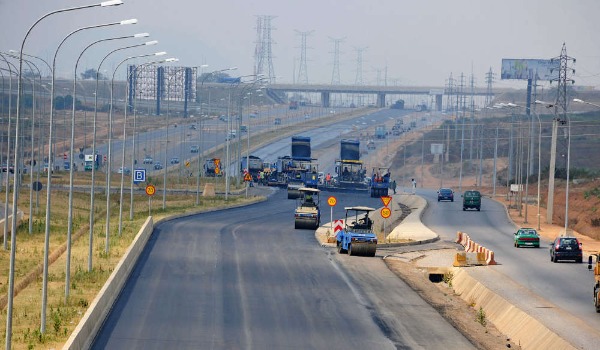The Impact of Infrastructure Development on Property Values in Nigeria
Infrastructure development is a key driver of economic growth and urbanization, and in Nigeria, it plays a pivotal role in shaping the real estate market. From new highways and bridges to airports, ports, and housing projects, the state of a city’s infrastructure significantly impacts property values. As Nigeria continues to invest heavily in infrastructure to boost its economy and support its fast-growing population, understanding how these developments influence property values is crucial for real estate investors, homebuyers, and developers alike.
In this blog post, we’ll examine how infrastructure development in Nigeria can affect property values, the sectors most impacted, and what this means for potential investors in 2024 and beyond.
1. The Direct Link Between Infrastructure and Property Value
Property values are not only driven by demand and supply but are also heavily influenced by the quality of infrastructure in a particular area. Infrastructure, in this case, refers to the physical and organizational structures needed for the operation of a society—things like roads, bridges, water supply, electricity, waste management systems, and telecommunications.
The availability and quality of these amenities make an area more accessible, livable, and desirable. In regions where infrastructure projects are either underway or planned, property values often experience significant growth. This increase in property values is especially noticeable in the following ways:
Improved Accessibility
- Road Networks and Public Transport: The construction of new roads, highways, and expressways, as well as the expansion of public transport systems, makes areas more accessible. This accessibility often drives up the demand for property in these locations, thus increasing property prices. For instance, when a new highway is built connecting a suburb to a city center, the areas around that highway typically experience an increase in property demand as people seek the convenience of proximity.
- Airport Proximity: Airports, when expanded or newly constructed, can significantly increase the value of properties in nearby areas due to better connectivity for both business and leisure travel. For example, the ongoing development at Nnamdi Azikiwe International Airport in Abuja and Murtala Muhammed International Airport in Lagos could drive property value appreciation in surrounding areas.
Enhanced Marketability
- Retail and Commercial Developments: Infrastructure projects that enhance the business environment—such as the construction of shopping malls, commercial centers, and office parks—make areas more attractive for businesses and residents alike. For instance, shopping malls such as The Palms Shopping Mall in Lekki, Lagos, have spurred the development of surrounding residential and commercial real estate as they increase foot traffic and accessibility to key services.
Increased Livability
- Basic Amenities: The provision of basic utilities like water, electricity, and waste management makes an area more livable. In many Nigerian cities, areas with poor access to these services typically suffer from lower property values. However, areas that have better access to these utilities often see a surge in property demand as people prefer to live in areas that offer these essential amenities.
2. Key Infrastructure Projects Impacting Property Values in Nigeria
Several large-scale infrastructure projects currently underway or planned in Nigeria are expected to significantly influence property values. Let’s take a look at a few major projects and their potential impact on real estate investments:
Lekki Deep Sea Port (Lagos)
The Lekki Deep Sea Port is one of the most ambitious infrastructure projects in Nigeria’s history. As one of the largest and most modern deep-sea ports in West Africa, it promises to transform Lagos into a major hub for international trade. This development is expected to create jobs, stimulate economic activity, and improve accessibility to the Lekki Free Trade Zone.
- Impact on Property Values: As the port becomes operational, the Lekki corridor is likely to experience significant demand for residential and commercial properties. Areas like Lekki Phase 1, Ajah, and Ibeju-Lekki are already seeing a surge in property prices, with both investors and end-users recognizing the potential for high returns in the near future.
Lagos Rail Mass Transit System
The Lagos Rail Mass Transit System (LRMT) is designed to alleviate traffic congestion and provide affordable, reliable public transportation across Lagos. The project, once completed, will improve connectivity between key areas of Lagos, including Ikorodu, Ikeja, Apapa, and Victoria Island.
- Impact on Property Values: Properties along the rail lines, especially in areas such as Yaba, Surulere, and Ikeja, are expected to see an increase in value. Proximity to a rail station often boosts the demand for both residential and commercial properties, as it makes commuting more convenient. This is already happening in areas like Yaba, where proximity to new transportation hubs has led to the development of new real estate projects.
Nigerian Railway Modernization Project
The ongoing Nigerian Railway Modernization Project aims to connect major cities in Nigeria via a standard gauge railway system. This project is expected to enhance intercity connectivity, reduce travel time, and encourage more efficient movement of goods and people.
- Impact on Property Values: Cities like Abuja, Kaduna, Lagos, and Port Harcourt stand to benefit the most from this project, with property values increasing in areas near train stations due to better access to transportation.
Abuja-Kaduna Expressway and Abuja’s Road Expansion Projects
Abuja’s infrastructural improvements, such as the expansion of the Abuja-Kaduna Expressway and new road networks, are designed to ease traffic congestion and enhance connectivity between Abuja and neighboring states.
- Impact on Property Values: Properties along the expressway and in newly accessible areas like Jabi and Kubwa are likely to see an increase in value. Investors in these areas will benefit from improved access to the city center and nearby commercial and residential areas.
3. How Infrastructure Affects Different Property Sectors in Nigeria
Infrastructure development does not impact all property sectors in the same way. Different property types are affected by infrastructure improvements in distinct manners. Here’s a breakdown of how different real estate sectors are impacted by infrastructure development in Nigeria:
Residential Real Estate
For residential real estate, infrastructure projects typically increase property values by improving accessibility, providing better amenities, and reducing congestion. Properties in well-connected areas with easy access to transport systems and social amenities tend to appreciate faster.
- Example: In Lekki and Ajah, where the construction of the Lekki-Epe Expressway is making commuting easier, residential property values have increased substantially in recent years.
Commercial Real Estate
Commercial real estate—including office buildings, retail spaces, and warehouses—often sees the most immediate impact from infrastructure improvements. The creation of efficient transport systems, improved utility access, and the development of new commercial hubs lead to higher demand for retail and office spaces.
- Example: Victoria Island and Lekki have seen a boom in commercial property development due to infrastructure upgrades, including better roads and improved access to key commercial hubs.
Industrial Real Estate
Industrial real estate is particularly sensitive to infrastructure development, especially in areas with improved logistics and transportation. The construction of major ports, roads, and rail networks helps improve the movement of goods, which in turn raises demand for warehouses, manufacturing facilities, and logistics hubs.
- Example: The development of the Lekki Deep Sea Port is expected to increase demand for industrial real estate in areas like Ibeju-Lekki and Epe, where warehouse and distribution centers are likely to grow.
4. The Ripple Effect: Infrastructure Development and Surrounding Areas
While primary infrastructure projects tend to impact properties closest to the development, the effects can also spread to surrounding areas, leading to wider real estate growth. For example, the construction of a new highway or public transport line in one part of the city can lead to price appreciation in other areas as people move outward in search of more affordable properties or better living conditions.
5. Why Real Estate Investors Should Pay Attention to Infrastructure Development
As a real estate investor, understanding the link between infrastructure and property values is key to making informed investment decisions. Here’s why you should keep infrastructure developments in mind when planning your next property investment:
- Capital Appreciation: Areas with planned or ongoing infrastructure development tend to see higher rates of capital appreciation, making them attractive for long-term investments.
- Predictable Returns: Infrastructure-driven property growth is often predictable. You can assess upcoming projects, monitor progress, and make investments based on projected development timelines.
- Increased Demand for Properties: With improved infrastructure, the demand for both residential and commercial properties increases, which leads to higher rental yields and better resale value.
Conclusion
In Nigeria, infrastructure development is one of the most significant factors influencing property values. Whether you’re investing in residential properties in Lagos, commercial spaces in Port Harcourt, or land in Abuja, the infrastructure projects in these cities will undoubtedly shape the real estate landscape for years to come. Understanding these dynamics will not only help you choose the right investment locations but also ensure that you maximize the potential returns on your property investments.
As Nigeria continues to invest in infrastructure, real estate investors should stay updated on ongoing and upcoming projects to strategically position themselves in high-growth areas. With the right knowledge and planning, you can leverage infrastructure development to boost your real estate investment portfolio.

